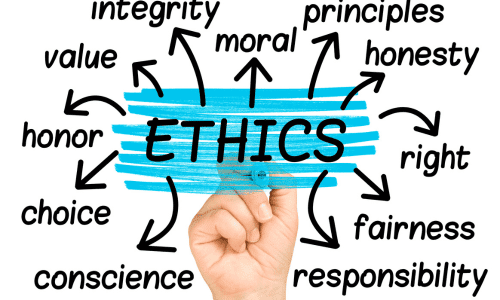
In today’s socially conscious world, businesses are expected to do more than just generate profits. Consumers and employees now demand that companies align their objectives with broader social and environmental goals. Brands that actively contribute to society and uphold ethical standards are rewarded with trust and loyalty. As a result, forward-thinking leaders are integrating ethics and Corporate Social Responsibility (CSR) into their core operations.
This article explores the best practices for embedding ethics into business operations, implementing CSR initiatives, and leveraging corporate citizenship to enhance branding and reputation.
Operating Ethically

Ethical principles serve as the moral compass guiding organizations towards responsible conduct. Here are essential ways to integrate ethics into operations:
- Values Statements: Formalize the principles of integrity, accountability, and transparency that all employees should uphold.
- Codes of Conduct: Establish clear guidelines for acceptable behaviour, explicitly prohibiting unethical practices such as deception, discrimination, and conflicts of interest.
- Ethical Training: Educate employees on ethical expectations, using case studies and protocols to address ethical issues, and regularly assess their comprehension.
- Vendor Screening: Ensure that suppliers, manufacturers, and distributors adhere to expected ethical business policies by conducting thorough vetting processes.
- Whistleblowing Policies: Create secure, anonymous channels for reporting ethics violations and concerns within the organization, guaranteeing protection against retaliation, and conducting thorough investigations.
- Leader Accountability: Incorporate ethical track records as part of the criteria for compensating and promoting leaders, holding everyone within the organization accountable for maintaining ethical standards.
- Decision Frameworks: Equip employees with tools to systematically assess the ethics of various options during decision-making processes, allowing for the identification of potential conflicts of interest.
- Oversight: Reinforce accountability by establishing ethics advisory panels, non-profit board positions, and independent auditors.
By embedding ethics deeply into operations, organizations can cultivate public trust and make ethical conduct an integral part of their corporate culture.
Defining Corporate Social Responsibility (CSR)

CSR encompasses a range of business initiatives aimed at making a positive impact on communities, social causes, and the environment. These initiatives may include:
- Sustainability: Minimizing environmental footprints by reducing energy consumption, waste production, pollution, and natural resource consumption.
- Volunteer Programs: Formalizing opportunities for employees to volunteer on company time, often through partnerships with charitable organizations, allowing employees to apply their talents and passions for a greater purpose.
- Philanthropic Giving: Donating money, products, or services to non-profit organizations, including sponsoring charitable events, establishing scholarship funds, and conducting fundraising campaigns.
- Fair Labor Practices: Ensuring safe, equitable working conditions and fair wages throughout the entire supply chain.
- Human Rights: Taking a proactive stance against human trafficking, child exploitation, discrimination, and forced labour, rather than simply reacting to these issues.
- Ethical Sourcing: Rigorously vetting suppliers and manufacturers to ensure responsible environmental and labour practices, thereby avoiding involvement with unethical sweatshops.
- Diversity Initiatives: Promoting diversity, equity, and inclusion both within the organization and through partnerships with community organizations.
- Civic Responsibility: Supporting relevant social and environmental policies and collaborating with government and community organizations to amplify the positive impact at the local level.
The specific CSR initiatives adopted by a company can vary widely based on available resources, employee interests, and alignment with the brand’s core values. The key is to focus on areas where the most significant positive impact can be made.
Strategic Benefits of CSR

While CSR initiatives are rooted in altruism, they also yield substantial benefits for businesses, including:
- Brand Affinity: As consumers increasingly support brands that align with their values, CSR efforts build affinity and trust among customers.
- Reputation and PR: CSR programs shape public perception, garner media coverage, and showcase a company’s commitment to corporate citizenship.
- Employee Satisfaction: Employees take pride in working for companies that give back, and offering volunteering opportunities can boost engagement.
- Talent Acquisition: CSR initiatives position a company as an ethical employer committed to a larger purpose, making it more attractive to potential hires.
- Investor Relations: Commitment to CSR helps attract investors who focus on Environmental, Social, and Governance (ESG) metrics as part of their investment criteria.
- Cost Savings: Sustainability initiatives, such as waste reduction and energy efficiency, lead to lower operating costs and can contribute to long-term savings.
- Risk Mitigation: By adopting responsible practices, companies minimize the risk of scandals, lawsuits, fines, and crises that could jeopardize their operations.
- Innovation: CSR encourages organizations to find innovative solutions to societal challenges, which can lead to the discovery of new products or services that benefit both the company and society.
Genuine social responsibility extends beyond mere public relations; it serves as a corporate purpose that goes beyond profits, aiming for win-win scenarios whenever possible.
Executing a CSR Strategy

To implement a CSR strategy effectively, consider the following systematic approach:
- Set Goals: Quantify the social and environmental impacts you aim to achieve, aligning them with Sustainable Development Goals (SDGs) or other relevant targets.
- Establish Metrics: Track various metrics, including program participation, volunteer hours, donations, sustainability Key Performance Indicators (KPIs), and levels of community engagement.
- Allocate Resources: Dedicate budgets to CSR initiatives, treating them with the same level of importance as other business priorities, and encourage the ideation of new initiatives.
- Assign Oversight: Appoint CSR officers or committees responsible for maintaining focus and accountability, and seek input from various departments within the organization.
- Formalize Processes: Develop well-defined CSR programs, moving beyond ad hoc efforts to ensure continuity, even during leadership changes.
- Train Ambassadors: Equip enthusiastic employees to champion CSR programs both internally and externally, enhancing their effectiveness.
- Amplify Reach: Collaborate with non-profit organizations to maximize the impact of philanthropic efforts, ensuring that resources are strategically allocated.
- Report Progress: Communicate CSR efforts and achievements through annual reports and company websites, emphasizing authenticity and transparency.
- Be Proactive: Continuously assess CSR opportunities and areas for improvement, aiming to be proactive rather than merely reacting to crises.
By integrating ethics and social responsibility into their business operations, organizations can reap the rewards of public goodwill, foster purpose-driven workplaces, and contribute to stronger communities. Leadership plays a pivotal role in setting the tone for ethical conduct and responsible corporate citizenship.
In summary, holistic CSR strategies empower companies to drive positive change in addressing society’s most pressing challenges. When executed effectively, these strategies transform brands into beacons of hope that consumers are proud to support. Now is the time for businesses to lead by example and make a lasting impact.
We’ve unpacked a lot today at Biz Step Ladder, and now it’s your turn to add to the dialogue. Do you have insights or experiences that could expand on what we’ve discussed? Perhaps you’ve identified an angle we haven’t covered. Jump into the conversation below with your comments and let’s continue the learning journey together. Your input is not just welcome—it’s a vital part of our community’s growth. So, what are your thoughts? Share them below and let’s enrich our business wisdom collectively!
Discover related content by exploring Starting a business, common pitfalls, and resources for new entrepreneurs.





